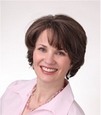How did your tax season go this year? Was preparing your taxes a breeze because you'd carefully organized everything throughout the year to avoid the frantic searches you'd experienced in past years? Or did you file an extension because you're hopeful that by October you'll be able to find all the documentation you need? Your tax records might not be the only papers that are in disarray - here are some tips to stay on top of it all. And whether it's this fall or next spring, here's to making your next tax season stress-free.
Create a place for incoming papers. As tempting as it may be to attack your paper backlog first, start your paper organizing project by establishing a place for all new papers to go - otherwise your piles will get more unwieldy as soon as you bring in the day's mail. Where does your paperwork collect now - the kitchen or dining room table?; the counter in the mudroom? Make the landing site official by assigning a container (a basket, decorative tray, or in-box) as your collection spot. Put all incoming paper (the mail, kids' school papers, receipts, etc.) in that spot until you're ready to act on it. Feeling better? Enjoy the relief of knowing that your piles aren't going to get any bigger because you've stemmed the tide of new additions.
Create a system for papers requiring action. Paper piles typically represent decisions to be made or actions to be taken. For example, an invitation to a party requires a number of decisions and actions: decide if you'll attend, RSVP, note the event on the calendar, buy a gift. Whew, no wonder you've been tossing it into a pile rather than acting on it! Establish places near where you'll take action to collect the appropriate papers: a file folder for phone calls near the phone, a basket on your desk for bills to pay, a magazine rack next to the comfy chair for things to read - you get the idea. Write a note in your planner to remind yourself to take action on these papers at least once a week (e.g., pay bills on Saturday).
Create a system for papers you need to keep. Set up a storage system for papers that don't require any further decisions or actions, as well as papers that themselves won't trigger the decisions or actions (e.g, information about an upcoming trip, carryout menus). You might want to set up a file cabinet or file cart; another option might be to scan your documents and store them electronically. Whatever system you choose, make sure it's convenient enough that you can easily add new papers to the system and retrieve them when you need them. You might be able to store legal documents and old tax returns in a box on a shelf because you'll rarely refer to them, while trip information and carryout menus might best be stored in a handy binder or file folder, and documents you'll need for next year's taxes might go into an accordion file.
Create a process for paring down the piles. Pick a pile to start with and decide on the next action for each piece of paper in the pile, one by one. As appropriate, toss it, recycle it, shred it, or integrate it into your action or filing/storage system. Stick with one pile until you've gotten to the bottom - you'll enjoy watching the pile shrink, even if it doesn't disappear as quickly as you'd like.
Create good habits to maintain your systems. Rather than mindlessly putting a piece of paper any old place, ask yourself what the next action is that you need to take on it, and put it in the appropriate spot so you move it along on its journey. It may take some time to develop this habit, so make a sign or jot a note in your planner to remind yourself to patrol your space daily and corral any wayward papers.
Internationally known professional organizer, author, and speaker Sue Becker is the founder and owner of From Piles to Smiles®. She enjoys helping people from around the world live better lives by creating customized systems to overcome their overwhelming paperwork, clutter, and schedules. She specializes in helping people who are chronically disorganized - those for whom disorganization has been a lifelong struggle that negatively impacts every aspect of their life, especially people with AD/HD. Her hands-on help, as well as her presentations, have helped thousands of individuals create substantial change in their lives.
Sue is Illinois’ first Certified Professional Organizer in Chronic Disorganization. She co-authored the book Conversations on Success, and has appeared as an organizational expert on NBC News and the national TV show, Starting Over. A CPA, Sue has an MBA from Northwestern University’s Kellogg Graduate School of Management.

Post new comment
Please Register or Login to post new comment.